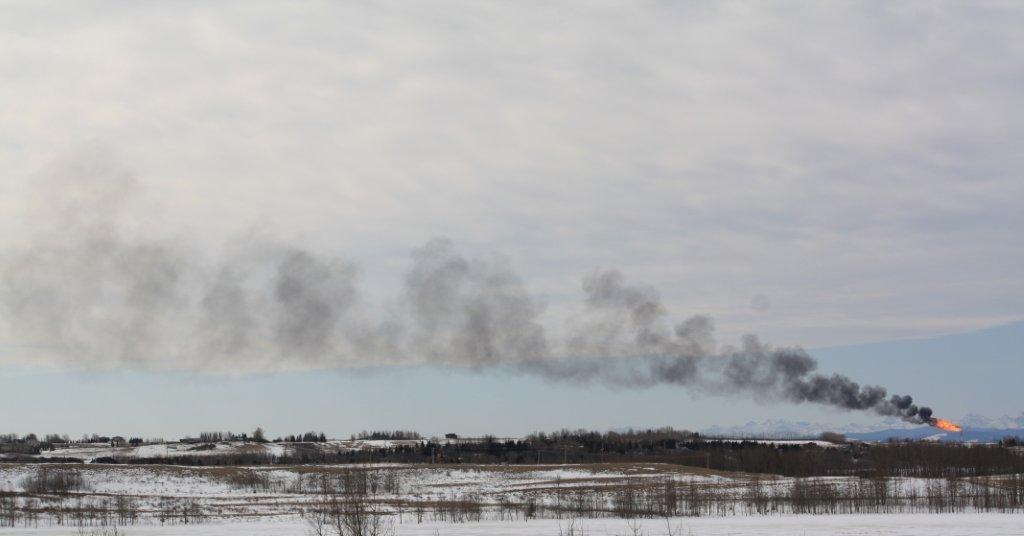Environment Department sued for Causing Environment Health Hazard Announcement by Docken Klym, March 11, 2014
“At all material times the Defendant [Alberta Environment and Sustainable Resource Development] owed a duty of care to the Plaintiff and other class members….”
Read the Complete Statement of Claim (6 pages)
A class action will be filed today by the residents of Bragg Creek against Alberta Environment and Sustainable Resource Development (ESRD) over extensive slash burning in the West Bragg Creek associated with logging operations as a result of a serious health hazard caused by smoke.The slash burning, which was originally controlled by incinerators was scrapped due to costs, subjecting Bragg Creek residents to a serious health risk. Wood smoke is a serious carcinogen that kills over 2,000,000 annually.
“ESRD continues to exhibit callous disregard for the health and safety of Bragg Creek residents – whether it is the operation of logging trucks or the burning of slash piles” states Doug Sephton, the proposed representative plaintiff.
“You might expect this to happen in a third world country – not here”.
If you are a resident of West Bragg Creek and have been affected by the slash burning, and would like more information on joining the Class Action, please complete the “Do I Have a Case?” form
Alberta Environment and Sustainable Resource Development; ESRD sends unmitigated slash burning smoke over West Bragg Creek homes, Residents file Class Action Lawsuit! by David Feil, March 19, 2014, Cochrane Times
Due to a change in their operating practices, Alberta Environment and Sustainable Resource Development (previously Alberta Environment) has been sending a lot of wood smoke into West Bragg Creek, and is now resulting in a class action suit by residents.
I’m In! by Bragg Creek.com, March 2014
Alberta Environment and Sustainable Resource Development (AESRD) is burning waste wood from the logging operations in West Bragg Creek. As the prevailing winds are from the west, most of this smoke saturates the homes nearby. It is also present on trails in the popular recreation area in Kananaskis. People exposed to the smoke may have their health and well-being compromised.They have been exposed to a lot of smoke over an extended period of time (January through March). Even if you don’t feel sick, the carcinogens are in the air all around us. If you live in the affected area, that is, west of Range Road 52 and/or if you have been adversely affected by the smoke, including while using the West Bragg Creek trails, you can help stop this archaic practice. There are better ways to dispose of the waste wood. We are doing something now to stop this wasteful and harmful practice. Docken Klym has filed a class action in relation to this practice. Doug Sephton is representing that claim on behalf of the class. As individuals we usually have so little influence and opportunity to make this a better world. We may have a chance to break through that barrier in this case. We would appreciate your support in this matter.
… Some people are seriously affected. The smoke contains carcinogens that can be a health risk. The smoke is everywhere in West Bragg Creek. The burning started in February and is scheduled to continue to the end of March. They burn huge piles of wood day and night. … The burning is done inefficiently, releasing a lot of smoke. As a result, the emissions cause frequent episodes of air pollution for many small communities, limiting visibility and leading to health problems. Some communities and provinces have banned the practice, even outlawed fireplaces.
… The government has a Bioenergy strategy designed to turn waste from logging into ethanol. They could follow their own strategy to solve a problem, but they choose to make it worse.
Clint Docken has filed a class action claim against ESRD in the Court of Alberta. I am the representative plaintiff. The class currently represents 5 people. You are encouraged to join the class if you live west of Range Road 52 and/or if you have been adversely affected by the smoke. We intend to use the action to halt any further burning close to our homes as it puts our health and well-being at risk. [Emphasis added]
[Refer also to:

March 12, 2014: Cochrane Interpipeline Gas Plant NW of Calgary
